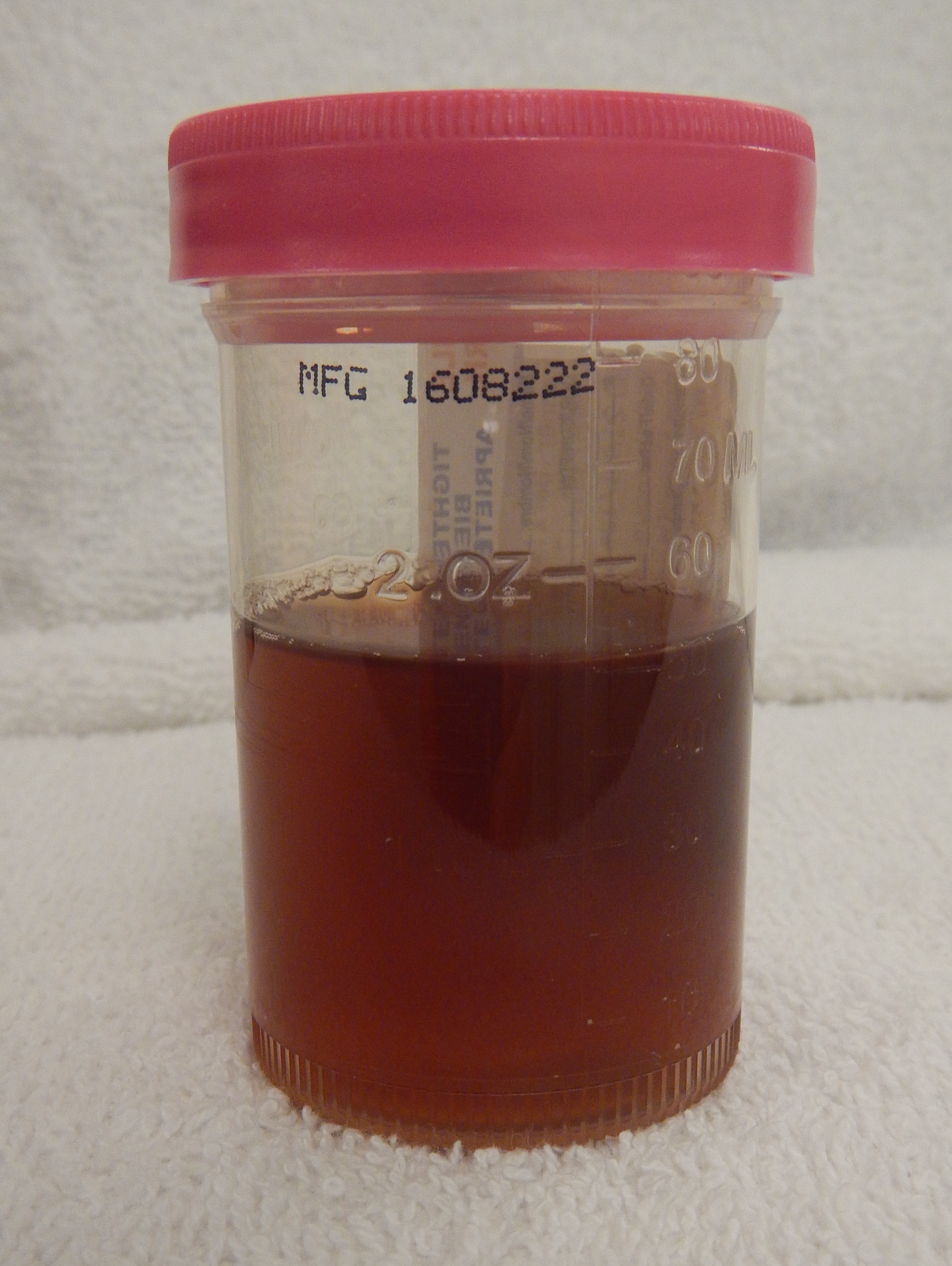Hematuria:
- Hematuria is defined as presence of abnormal number of RBCs in urine or presence of blood in urine due to urinary tract bleeding
- It is characterized by small number of RBC in urine and visible only during microscopic examination of sediment in urine
- Urine may appear pink, red, or dark brown and may contain blood clots when viewed grossly.

Etiology:
- Trauma
- Hemorrhage
- Urolithiaisis
- Inflammatory conditions
- Infection
- Toxemia
- Exercise
- Neoplasia in urinary tract
- Sweet clover poisoning
- Cystitis, post-partum infection
Clinical Signs:
- Voiding of dark brown, pink or red colored urine
- Straining to urinate
- Painful micturition
- Squatting frequently to pass small amount of urine
- Bruising on skin
- Bleeding from nose and gums
- Bleeding within eyes
- Bloody vomit or feces
Diagnosis:
- Based on history of trauma, poisoning
- Based on clinical findings
- Urinalysis: presence of RBC in urine during microscopic examination of urine sediment
- CBC
- Urine culture to rule out bacterial infections
- Serological test to rule out viral infections
- Benzidine test is carried out to detect hematuria
Procedure of benzidine test:
- Small amount of benzidine is dissolved in glacial acetic acid in test tube
- 2 ml of urine is added to this reagent
- 1 ml of fresh hydrogen peroxide is added
- In case of positive sample, blue green colour develops.
Treatment:
- Treatment depends on underlying causes of hematuria
- In case of inflammatory disease, corticosteroids or NASID are administered
- In case of bacterial infection resulting hematuria, antibiotics are administered either orally or parenterally
- Kidney stones requires therapeutic diet or surgery
- In case of neoplasia, chemotherapy or radiation therapy is recommended in animals
- Adequate amount of clean drinking water should be provided or fluid therapy to flush out blood clots, bacterial toxins or bacteria
- Correction of urinary pH either through administration of urinary acidifier or alkalizer
- In case of bleeding disorder, vitamin K injection or oral dose is recommended. Vitamin K is administered @ mg/kg, SC followed by 1.1mg/kg, SC, every 12 hours until active bleeding subsides. Oral tablets can be given twice a day in same dosage as in injection